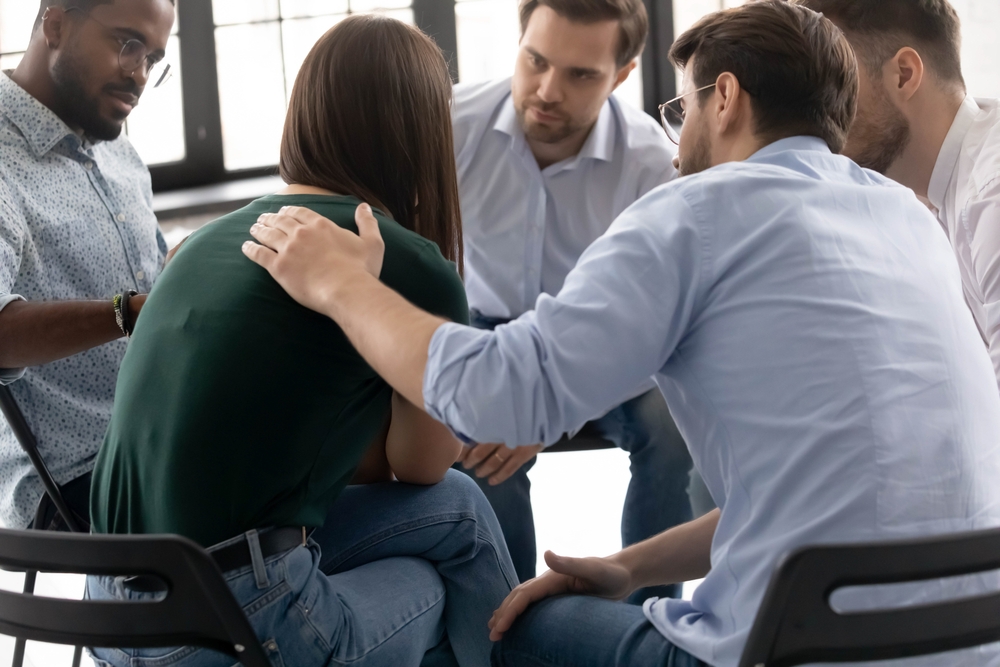Last Updated:
July 30th, 2025
Addiction Counselling | What to Expect
What is addiction counselling?
Addiction counselling is a form of talking therapy designed to support people who are struggling with substance use. It offers a space to explore why the addiction developed, what’s keeping it going and how change can happen. The aim isn’t to judge or shame but to help someone better understand themselves and the patterns in their life. Counselling gives people tools to cope, guidance to move forward and a sense of support that can make recovery feel possible, even when things feel uncertain or overwhelming.

Are there different types of addiction counselling?
Addiction counselling includes a range of therapy models that have been adapted to support people recovering from drug or alcohol use. Many of these approaches were originally developed for other mental health conditions but when used in an addiction setting, they become valuable recovery tools.
Below are some of the methods used:
Cognitive behavioural therapy (CBT)
CBT focuses on recognising and changing unhelpful patterns in how a person thinks and behaves. In addiction treatment, CBT helps people notice the beliefs that keep them stuck and the habits that keep pulling them back toward substance use. For example, someone might believe they can’t cope with stress unless they drink. CBT helps to challenge those beliefs and replace them with more helpful thoughts and behaviours that support long-term change.
Dialectical behaviour therapy (DBT)
DBT was created for people who experience intense emotions and difficulty managing them. In addiction counselling, it’s used to help people understand their emotional responses and build better coping mechanisms. Someone who turns to drugs when they feel overwhelmed can use DBT to tolerate distress and manage emotions in a healthier way. It also teaches skills like mindfulness, which helps bring focus back to the present moment instead of acting on impulse.
Motivational interviewing (MI)
Motivational interviewing helps people work through any mixed feelings they might have about changing their behaviour. In addiction recovery, it’s especially useful in the early stages, when someone may not feel fully committed to quitting. MI doesn’t tell people what to do. It draws out their own reasons for wanting to change, helping them take ownership of the process in a way that feels right to them.
Family therapy
Addiction can strain relationships, especially between family members. Family therapy looks at how everyone is affected and how the family system can support recovery. Sometimes, family dynamics contribute to the addiction without anyone realising. This type of therapy helps families rebuild trust, improve communication and understand what their loved one is going through. It also allows family members to express their own feelings and learn how to set healthy boundaries.
Holistic therapies
Holistic approaches include activities like yoga, mindfulness, creative expression and breathwork. These therapies offer support that isn’t just psychological but also emotional and physical. In addiction treatment, they help people reconnect with their bodies, manage stress and build new routines that don’t involve substance use. While not everyone will connect with holistic methods, for some people, they offer a new way to feel calm or even inspired.
Struggling with an addiction? If you are ready to seek help, reach out to us today, and a member of our compassionate team will help you find the best option for starting your recovery journey.
Does addiction counselling stop the possibility of relapsing?
It’s easy to see why people might hope that addiction counselling is the final answer to staying clean or sober. Counselling can change lives. But the truth is, there are no guarantees when it comes to relapse prevention. Addiction is complex and the risk of returning to old patterns doesn’t vanish overnight. What counselling offers is support, understanding and a set of tools that make the journey more manageable.
Here’s how addiction counselling helps with relapse prevention:
A chance to focus on your personal triggers
One of the most useful things counselling can do is help identify personal triggers. These are the people, places, emotions or events that tend to push someone toward using. Recognising those triggers early on means you can begin planning ways to manage them.
A chance to learn how to deal with stressors
Another way counselling helps is by making sure you have strategies to deal with stress. When life gets overwhelming, it’s natural to want an escape. Counselling helps you find ways to release stress that won’t lead you back into harm.
A chance to learn how to manage cravings
It also builds confidence in resisting cravings. Even when cravings show up, knowing how to respond to them can reduce their power. Through counselling, people develop practical responses to urges that used to feel impossible to resist.
A chance to grow your emotions in a healthy environment
Counselling encourages emotional growth. As people begin to understand their behaviours and emotions more clearly, they’re often able to make better decisions and avoid repeating past mistakes. It helps create a sense of self-awareness that supports long-term change.
A chance to re-evaluate relapse prevention techniques
Perhaps most importantly, addiction counselling can be there if relapse does happen. Counselling creates a safe space to talk about what went wrong and how to get back on track without shame or judgement. Recovery is never about perfection. It’s about continuing to move forward, even if you stumble.

Do all addiction treatment programmes use addiction counselling in aftercare?
Most rehab centres include addiction counselling as part of their aftercare services. This is because recovery doesn’t end once you leave a treatment facility. Real life comes back into focus and with it, all the pressures and temptations that can challenge your progress. Counselling in aftercare helps you adjust to life outside of rehab while still having the support to manage new triggers and any emotional upheaval that might show up.
That said, counselling isn’t the only option. Some people prefer support groups, peer mentorship or more activity-based recovery tools. Others might find they connect more with spiritual approaches or recovery communities that focus on accountability. If, for any reason, addiction counselling doesn’t seem to work for you in aftercare, it’s okay to explore what else might.
We know that choosing the right support after rehab can be confusing. That’s why we’re here. At Addiction Helper, we listen to where you’re at in your journey and help you find addiction counselling services that actually feel like a good fit. Whether you want to continue therapy one-on-one, join a group setting or try something new altogether, we’ll help you figure out what’s available and how to get started. If you’re unsure or just need someone to talk it through with, reach out. We’re here to help you take the next step with clarity and confidence.
Our compassionate team are ready and available to take your call, and guide you towards lasting the lasting addiction recovery you deserve.

